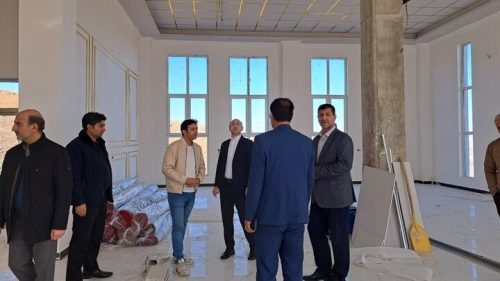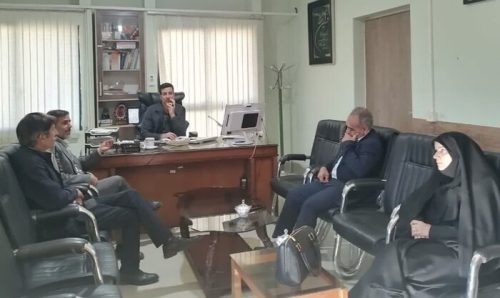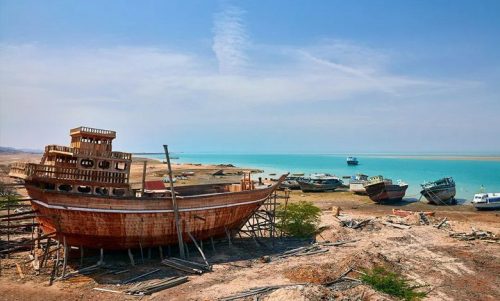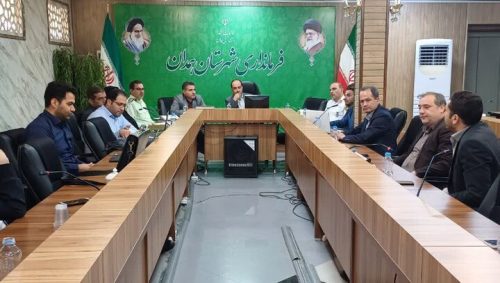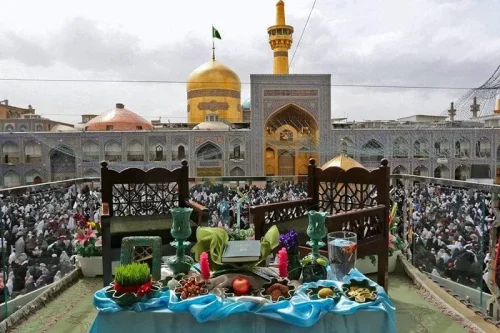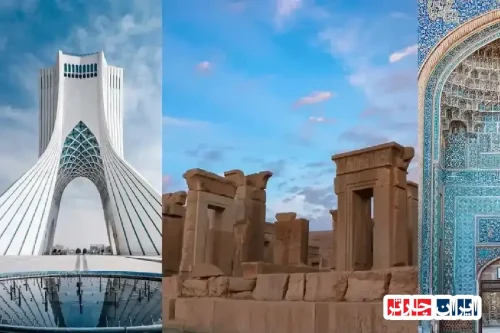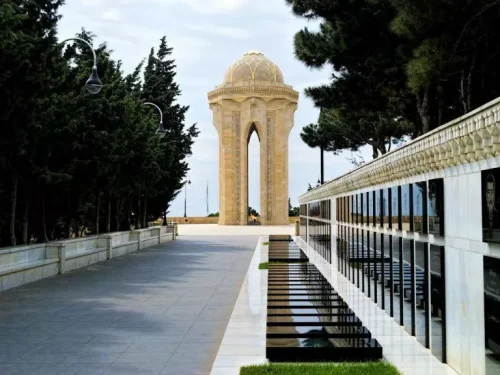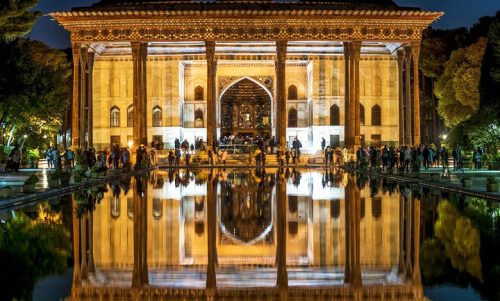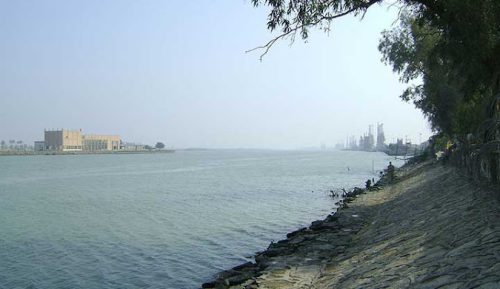Revitalizing Tourism for Gen Z with Innovative Strategy Shifts
In today’s fast‐paced global environment, the tourism industry stands at the crossroads of transformation as never before. Emerging trends indicate a fundamental change in travel patterns, with a new generation stepping into the spotlight. The modern traveler, often described as part of Generation Z, is actively seeking experiences that are both authentic and technology‐driven. This shift, encapsulated in the idea of “Revitalizing Tourism for Gen Z with Innovative Strategy Shifts”, represents a dynamic interplay between digital innovation and an evolving demand for immersive cultural and recreational experiences. As traditional travel paradigms give way to more personalized, interactive, and often socially driven itineraries, service providers are challenged to reimagine legacy models and invest in creative strategies. These innovations are not solely about incorporating state-of-the-art technology but also about understanding the unique values, habits, and aspirations of a generation that has grown up with instant access to global information. The new era of travel is less about passive tourism and more about active engagement; it encourages exploration, learning, and cultural exchange while leveraging digital platforms to enhance every step of the journey.
The travel behavior of Generation Z diverges significantly from that of previous generations. Today’s youth look beyond conventional vacation packages; they seek curated experiences that reflect their individual tastes and the social dynamics of their interconnected world. Travelers now expect opportunities to engage with local communities, indulge in authentic culinary adventures, and experience art and culture in ways that resonate personally with them. “Revitalizing Tourism for Gen Z with Innovative Strategy Shifts” underscores the importance of not only modernizing infrastructure and online booking systems but also of personalizing the entire travel narrative. In this context, planning a vacation has evolved into a process of co-creation; travel enthusiasts collaborate with service providers to design itineraries that are as unique as they are memorable. This evolving paradigm is prompting a redefinition of value, where the experiential element often outweighs the traditional metrics of comfort or cost efficiency. Moreover, as digital natives, these young travelers are adept at using social media and mobile apps to compare, review, and ultimately select destinations that promise both novelty and sustainability.
Beyond the changing mindset of travelers, the underlying business strategies in tourism are undergoing a radical transformation. Companies are embracing a more integrated approach where data analytics, customer feedback, and digital storytelling merge to create compelling travel narratives. The concept of “Revitalizing Tourism for Gen Z with Innovative Strategy Shifts” reflects a broader commitment to bridging the gap between technology and tradition. This approach helps providers not only anticipate but also shape emerging trends by curating seamless experiences that integrate local heritage with modern amenities. As immersive technology such as augmented reality and virtual reality become more accessible, there is newfound potential to offer virtual previews of destinations, interactive tours, and dynamic cultural experiences that transcend geographic boundaries. These innovations are empowering travel brands to offer services that are both forward-thinking and deeply rooted in local authenticity. The synergy between digital tools and cultural storytelling is paving the way for a tourism experience that is highly personalized, accessible, and engaging for a generation that is accustomed to immediacy and innovation.
Z Generation Tourism-Iran Charter
In addition to leveraging cutting-edge technology, industry leaders are reexamining their value propositions to cater to this new demographic. Strategic realignments are being made to ensure that every facet of the travel experience resonates with young adventurers in profound ways. The push for “Revitalizing Tourism for Gen Z with Innovative Strategy Shifts” is not merely a buzz phrase but a comprehensive framework for rethinking service delivery across the tourism spectrum. Service providers are investing in smart applications and predictive analytics to gauge traveler preferences, while also emphasizing sustainability and ethical tourism practices. The integration of eco-friendly solutions, local craftsmanship, and digital convenience creates a balanced offering that appeals to both the head and the heart. Amid this transformation, customer engagement has become more decentralized, with peer recommendations and user-generated content significantly influencing decision-making processes. As travelers increasingly rely on digital channels to share and discover experiences, tourism brands are using these platforms to build lasting relationships that drive loyalty and repeat visits. This integrated approach—blending technology, tradition, and transparency—represents a pivotal step toward a more resilient and adaptive tourism industry.
Tourism stakeholders are also focusing on the enhancement of destination marketing strategies that speak directly to the aspirations of Gen Z. By harnessing emerging trends and innovative digital tools, marketers are crafting personalized messages that highlight the uniqueness of each location. The call for “Revitalizing Tourism for Gen Z with Innovative Strategy Shifts” resonates strongly here because it encapsulates the need to dissolve the boundaries between digital engagement and real-world experiences. Content is now being tailored to reflect the social values and cultural diversity that this generation prizes, incorporating elements like immersive video storytelling, interactive web experiences, and real-time customer feedback. This targeted approach ensures that prospective travelers can envision themselves within the narrative of the destination long before they even pack their bags. Moreover, by emphasizing the cultural, historical, and contemporary aspects of a locale, marketers provide a holistic view that highlights not only the attractions but also the underlying stories that make each place unique. This strategy is fundamental in forging an emotional connection between the traveler and the destination, ultimately driving both visitation and positive word-of-mouth.
Z Generation Tourism-Iran Charter
As the tourism landscape continues to evolve, challenges such as environmental sustainability, cultural preservation, and equitable community development increasingly influence the design of travel experiences. Efforts towards “Revitalizing Tourism for Gen Z with Innovative Strategy Shifts” are not solely confined to enhancing digital presence but also aim to address broader societal concerns. Service providers are increasingly mindful of their social responsibilities, ensuring that tourism development aligns with the goals of both conservation and community empowerment. Initiatives include the promotion of eco-tourism, support for local businesses, and the integration of community-led projects into travel itineraries. This new direction reflects a deep commitment to ensuring that tourism remains a positive force for economic and cultural development. It also mirrors the values of Gen Z, a generation that is both tech-savvy and socially conscious, eager to support brands that promote ethical practices and sustainable growth. Through collaborative initiatives with local communities and dedicated investments in renewable energy and conservation projects, the tourism industry is setting a course toward a more balanced and inclusive future.
Looking ahead, the future of tourism appears poised to benefit significantly from these transformative strategy shifts. By embracing the mantra of “Revitalizing Tourism for Gen Z with Innovative Strategy Shifts”, both service providers and destinations can unlock new opportunities for growth and engagement. As digital platforms and innovative technologies continue to reshape how travel experiences are conceived and consumed, there will be an ever-increasing need to balance innovation with the preservation of cultural heritage. Forward-thinking organizations are already experimenting with immersive experiences such as mixed reality tours and AI-driven personalized recommendations that promise to redefine the way travelers interact with the world. This evolution is not without its challenges; however, it underscores the urgency for businesses to remain agile and responsive in the face of rapid technological advancements. The emphasis on adaptability, continuous learning, and customer-centric innovation is at the heart of this transformative journey. In embracing these shifts, the tourism industry is well-positioned to not only meet the demands of a new generation but also to create a legacy of sustainable, inclusive, and inspiring travel experiences that celebrate diversity and foster global understanding.
Z Generation Tourism-Iran Charter
In conclusion, the journey towards a reinvigorated tourism landscape is both challenging and exciting. By centering strategies around the concept of “Revitalizing Tourism for Gen Z with Innovative Strategy Shifts”, industry stakeholders are redefining the parameters of what modern travel can be. This approach harmonizes advanced digital solutions with a deep appreciation for cultural authenticity and social responsibility. The ongoing evolution in travel behavior driven by Generation Z demands that every aspect of the tourism experience—from marketing to on-ground services—be reimagined in innovative ways. As new digital tools pave the way for richer, more interactive consumer experiences, and as ethical tourism practices gain prominence, there is a growing recognition that the future of travel lies in a seamless integration of technology, tradition, and community values. This transformative perspective not only opens up exciting opportunities for businesses to grow and innovate, but it also promises to deliver travel experiences that are more meaningful, engaging, and sustainable. With a strong commitment to continuous improvement and a clear focus on meeting the modern traveler’s expectations, the tourism industry is embarking on a path that will undoubtedly shape the future of global travel for years to come.
The Nexus of Gen Z Tourism and Future Travel Experiences
In today’s rapidly evolving travel landscape, Revitalizing Tourism for Gen Z with Innovative Strategy Shifts is shaping a new era where technology and authenticity intertwine. Modern travelers are redefining the tourism narrative by seeking immersive, culturally rich experiences that both honor local traditions and embrace digital innovations. This pivotal connection marks a transformative shift in how destinations are marketed and experienced, encouraging service providers to rethink legacy models and build sustainable, interactive travel solutions.
Transitioning from Traditional Travel Approaches to Gen Z Innovations
Traditional tourism is yielding to a dynamic era of Revitalizing Tourism for Gen Z with Innovative Strategy Shifts, where conventional packages are replaced by personalized journeys. Today’s travelers demand experiential adventures that go beyond mere sightseeing; they seek opportunities to engage with communities, sample authentic culinary delights, and interact with local artists and innovators. This emergent mindset drives the industry to adopt agile, creative strategies that blend heritage with high-tech amenities.
Leveraging Cutting-Edge Technologies to Enhance Gen Z Travel
Revitalizing Tourism for Gen Z with Innovative Strategy Shifts is powered by the integration of emerging technologies such as augmented reality, virtual tours, and data analytics. These digital tools not only provide immersive previews of destinations but also allow travelers to co-create their itineraries with ease. As mobile applications and smart platforms become central to travel planning, service providers are well-positioned to offer hyper-personalized experiences that resonate with the tech-savvy spirit of Gen Z.
Merging Tradition and Innovation for a New Tourism Paradigm
The fusion of time-honored cultural narratives with modern technological advancements is at the heart of Revitalizing Tourism for Gen Z with Innovative Strategy Shifts. This synthesis creates rich, multidimensional experiences that honor local heritage while appealing to contemporary preferences. By integrating digital storytelling with authentic, community-driven insights, the industry is redefining travel as a collaborative and transformative journey for the new generation.
The Importance of Authentic Local Experiences in Gen Z Tourism
A core element of Revitalizing Tourism for Gen Z with Innovative Strategy Shifts lies in the delivery of genuine local experiences that captivate and educate. Gen Z travelers are drawn to destinations that offer unique narratives—whether through traditional crafts, culinary traditions, or historical landmarks. Immersive interactions with local culture not only deepen their travel experience but also foster sustainable economic benefits for communities, creating a touristic model that values both authenticity and innovation.
Creating Sustainable Job Opportunities Through Innovative Tourism Models
Revitalizing Tourism for Gen Z with Innovative Strategy Shifts is instrumental in fostering economic growth and job creation. As the tourism industry pivots towards tech-infused and experience-driven models, myriad opportunities emerge for local artisans, digital content creators, and service entrepreneurs. This shift encourages community empowerment by promoting local startups, enhancing visitor engagement, and generating sustainable employment that reflects both global trends and unique regional strengths.
Digital Communication Strategies for Engaging Gen Z Travelers
Digital platforms and social media are now pivotal in shaping travel narratives, as showcased by the movement of Revitalizing Tourism for Gen Z with Innovative Strategy Shifts. Marketers harness interactive content, real-time customer feedback, and visually driven storytelling to forge an emotional connection with young travelers. This strategic digital communication not only drives brand loyalty but also helps tailor bespoke experiences that align with Gen Z’s quest for transparency, personalization, and authenticity.
Innovative Service Designs and Creative Tourism Experiences
The essence of Revitalizing Tourism for Gen Z with Innovative Strategy Shifts lies in crafting inventive services that break away from traditional approaches. Creative tour designs, interactive digital maps, and personalized travel narratives are transforming the way destinations connect with visitors. By reimagining travel experiences into engaging, story-driven adventures, the industry is setting new benchmarks for guest satisfaction and collaborative innovation, ensuring that every journey is both memorable and meaningful.
Future Perspectives and Strategic Roadmaps for Gen Z Tourism
Looking ahead, the evolution of travel will increasingly be defined by Revitalizing Tourism for Gen Z with Innovative Strategy Shifts. Forward-thinking strategies, rooted in both digital innovation and cultural preservation, will guide the industry toward a future where personalized experiences and sustainable practices are paramount. By continually adapting to the dynamic preferences of Gen Z, tourism stakeholders are paving the way for a resilient, globally competitive sector that celebrates diversity and fosters enduring community bonds.
Frequently Asked Questions
- What is Generation Z in tourism and what are its characteristics?
- Generation Z in tourism refers to young travelers who were born into the digital era. They seek immersive digital experiences and engaging content rather than just a simple trip.
- How can Generation Z contribute to the transformation of the tourism industry?
- By using their digital expertise and creative approach to content and marketing, Generation Z is set to redefine and transform the tourism landscape.
- What is the importance of technology and the internet in the tourism experience?
- Technology provides quick access to essential information, enables seamless communication, and allows travelers to share their journey moments, thereby enhancing the overall experience.
- How do young people improve the tourism experience?
- Young travelers introduce innovative ideas and fresh perspectives, offering specialized tours and creative content that enrich the tourism experience.
- How can tourism align with local culture?
- Tourism can seamlessly integrate with local culture by emphasizing regional traditions, supporting local crafts, and organizing cultural events that honor the area’s heritage.
- Is tourism solely dependent on physical infrastructure?
- No, tourism is also driven by human connections, local cultural practices, and digital advancements, making it a multifaceted experience.
- How can government support help transform tourism?
- Government initiatives such as skill training, financial incentives, and relaxed regulations can stimulate growth and innovation within the tourism sector.
- What training is essential for tourism personnel?
- Tourism professionals benefit from training in digital marketing, tour guidance, managing local accommodations, and crafting engaging travel content to better serve travelers.
- What opportunities exist for employment in the tourism industry?
- The tourism sector provides a range of employment opportunities, from content creation and social media management to designing unique travel experiences and offering local services.
- How can tourism businesses leverage Generation Z’s potential?
- Businesses, including those promoted by Iran Charter, can capitalize on Generation Z’s creativity by embracing innovation, designing unique travel experiences, and encouraging fresh ideas.
- What is the impact of social media on the growth of the tourism industry?
- Social media platforms enable travelers to share their experiences, discover new destinations, and engage with tourism brands, significantly broadening the market.
- Does tourism require massive investment?
- Tourism often thrives by leveraging local resources and personal interactions, meaning it can grow effectively without the need for huge capital investments.
- What is the role of digital infrastructure in the growth of tourism?
- Robust digital infrastructure—including fast internet, dedicated tourism apps, and effective communication systems—enhances accessibility and improves overall traveler satisfaction.
- How can Generation Z be attracted in tourism planning?
- Adopting communication styles and training methods that resonate with Generation Z can greatly enhance their participation in tourism planning and innovation.
- What is the impact of human interaction on the tourism experience?
- Meaningful human interactions contribute to memorable and heartfelt travel experiences, encouraging satisfaction and repeat visits.
- How can local and sustainable tourism be developed?
- Focusing on authentic local experiences, preserving cultural heritage, and supporting local crafts can stimulate sustainable growth in the tourism sector, benefiting local economies.

